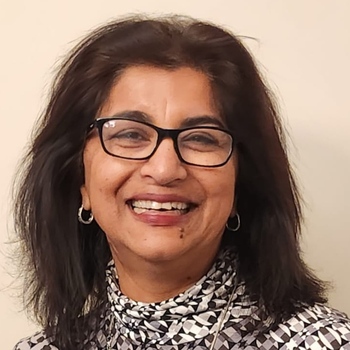Rachel Mathew, a seasoned trauma-informed psychotherapist and licensed clinical social worker, offers individual, couples, family, and group therapy in a supportive environment. She is licensed in both North Carolina and Connecticut.
Rachel holds a master’s degree in social work from the Tata Institute of Social Sciences in Mumbai, India, with a specialization in Medical and Psychiatric Social Work. With over 35 years of experience, including 25 years in private practice, Rachel has worked extensively with children, adolescents, and adults.
Rachel has held impactful leadership roles in non-profit organizations, focusing on family violence, sexual assault, rape, and incest. She served as the Director of Domestic Abuse Services at the YWCA of Greenwich, Connecticut, and currently serves on the NASW-NC Board of Directors.
Her specialized training includes Reproductive and Maternal Mental Health at the Postpartum Stress Center in Pennsylvania and advanced perinatal certification from Postpartum Support International (PSI). She helped found and develop the North Carolina chapter of PSI and contributed significantly as Vice Chair of the Board of Directors.
Her expertise also includes working with cancer patients, individuals with long-term illnesses, and bereavement support. Rachel integrates David Kessler's work on grief and loss and is a Certified Grief Educator.
Her inclusive practice embraces individuals from all backgrounds, ensuring a culturally competent and sensitive therapeutic environment. By acknowledging and honoring diversity, Rachel creates a safe and affirming space where clients can explore their identities, beliefs, and challenges without fear of judgment.
Rachel Mathew is dedicated to empowering individuals, couples, and families on their healing journeys through her comprehensive expertise and compassionate approach, toward healing and fulfilment, integrating her experience, faith and commitment to the social work practice.

RACHEL MATHEW, MSW, LCSW
Psychotherapist
